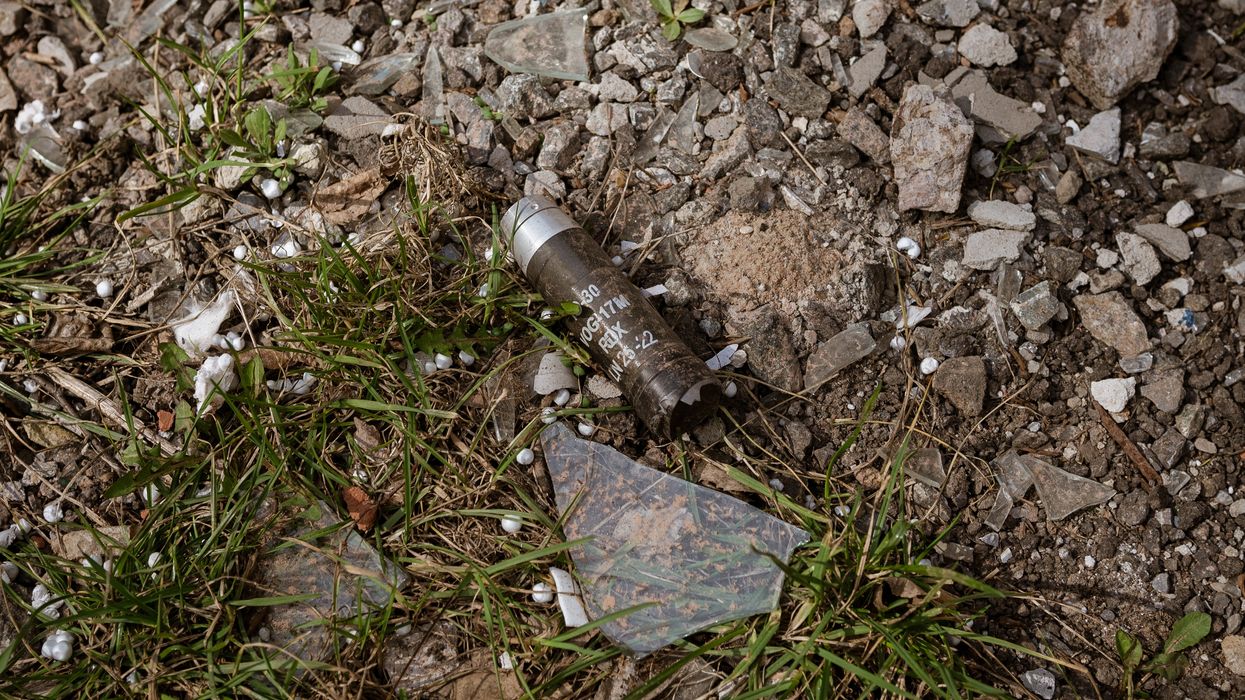Sending Cluster Bombs to Ukraine Will Make the War Deadlier
In order to protect children and other innocent civilians in Ukraine, all countries must permanently ban the use and production of cluster munitions.
The use of cluster bombs by the warring factions in Ukraine is a tragic turn of events that will result in many more civilian deaths, many of them children. Russian forces have used cluster munitions in populated areas of Ukraine since they started the invasion of that country on February 24, 2022. Ukraine has also been using them and will increase their use with the recent approval from the United States to deliver those weapons.
President Joe Biden justified his decision to send cluster bombs to Ukraine because its forces are running out of ammunition. The decision to send cluster bombs to Ukraine is happening at the same time that the United States government is destroying its chemical weapons stockpile from a military installation in Kentucky. It is a tragic irony that while the U.S. is stopping the use of a dangerous weapon, it is still promoting the use of an equally indiscriminate one.
Cluster bombs eject explosive bomblets (little bombs) designed to kill indiscriminately and destroy vehicles over a wide expanse. According to national security adviser Jack Sullivan, while Russian submunitions were 30 to 40% duds, the ones sent to Ukraine did not have a dud rate (the rate at which they fail to explode upon landing) higher than 2.35%. Those unexploded bomblets can continue killing or maiming civilians long after a conflict has ended, and are very costly to find and remove.
“Cluster bombs make evident the perverse use of technology. They kill more with less.”
“Cluster munitions used by Russia and Ukraine are killing civilians now and will continue to do so for many years,” said Mary Wareham, acting arms director at Human Rights Watch. “Both sides should immediately stop using them and not try to get more of these indiscriminate weapons.” Studies of cluster munitions use have found that between one-quarter and two-thirds of the victims are children.
The use of cluster munitions has been condemned by the United Nations, the Red Cross, Human Rights Watch, Amnesty International, the Cluster Munition Coalition, and Doctors Without Borders. In a statement, the U.S. Cluster Munition Coalition said it was “appalled by the decision by President Biden to transfer these banned weapons, and urges that he reconsider given the significant humanitarian, human rights, and political risks involved.”
Attacks using cluster munitions may be considered war crimes, since they are carried out in violation of accepted international rules of war. All nations that ratified the Convention on Cluster Munitions adopted in Dublin, Ireland, in May 2008, are prohibited from using them. This Convention entered into force and became binding international law on August 1, 2010. The Convention on Cluster Munitions “bans the stockpiling, use and transfer of virtually all existing cluster bombs, and provides for the clearing up of unexploded munitions.”
As of February 10, 2022, a total of 123 states joined the Convention, 110 as state parties and 13 as signatories. Many of the world’s major military powers, including the United States, Russia, Brazil, China, and Ukraine, are not signatories of that treaty. The treaty’s obligations became legally binding after 30 states ratified the convention, and subsequently for all other ratifying states.
More than 100 countries have agreed in principle that their stockpiles of cluster munitions should be destroyed. However, at least 17 countries have used cluster munitions in recent times. Since 2005, Handicap International has collected hundreds of thousands of signatures to support its campaign to ban these weapons. “Cluster bombs make evident the perverse use of technology. They kill more with less,” says Carlos Duguech, an Argentinian peace activist.
There is a disconnect between leaders’ decisions about the war in Ukraine, and what most of the people worldwide, horrified by the traumas of war, truly want. In order to protect children and other innocent civilians in Ukraine, all countries must permanently ban the use and production of cluster bombs. Avoiding the loss of thousands of innocent children’s lives justifies this decision.


